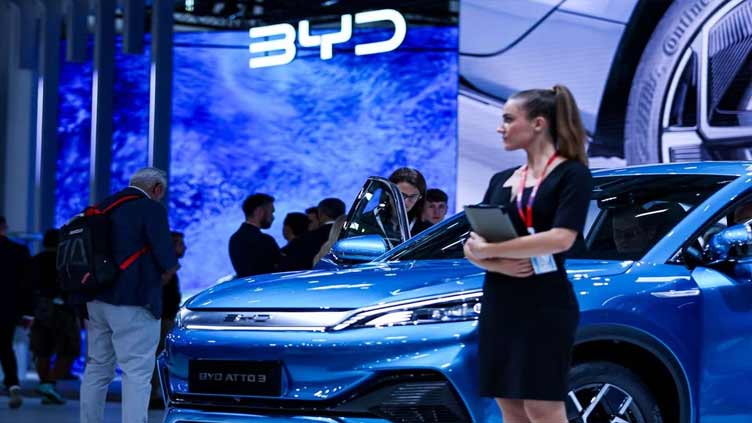Tech
Europe’s carmakers fret over China’s EV prowess at Munich car show

Tech
Microsoft to invest 2.2bn dollars in cloud and AI services in Malaysia
Microsoft to invest 2.2bn dollars in cloud and AI services in Malaysia
Tech
Nvidia supplier SK Hynix says HBM chips almost sold out for 2025
Nvidia supplier SK Hynix says HBM chips almost sold out for 2025
Tech
Qualcomm jumps as AI sparks rebound in Chinese smartphone market
Qualcomm jumps as AI sparks rebound in Chinese smartphone market
-

 Sports3 months ago
Sports3 months agoSon and Bissouma ready for Spurs game with Brighton
-

 Fashion2 months ago
Fashion2 months agoGiorgio Armani catwalk blooms with florals at Milan Fashion Week
-

 Sports3 months ago
Sports3 months agoSinisterra signs long-term deal with Bournemouth
-

 pakistan3 months ago
pakistan3 months agoECP convenes emergency meeting today
-

 pakistan3 months ago
pakistan3 months agoECP rejects Salman Akram’s plea for PTI affiliation
-

 World2 months ago
World2 months agoTaiwan ally Tuvalu names Feleti Teo as new prime minister
-

 World2 months ago
World2 months agoTunisia court sentences ex-president Marzouki to 8 years in absentia
-

 Sports2 months ago
Sports2 months agoScaled-back opening ceremony for Paris Olympics to offer 326,000 tickets




















